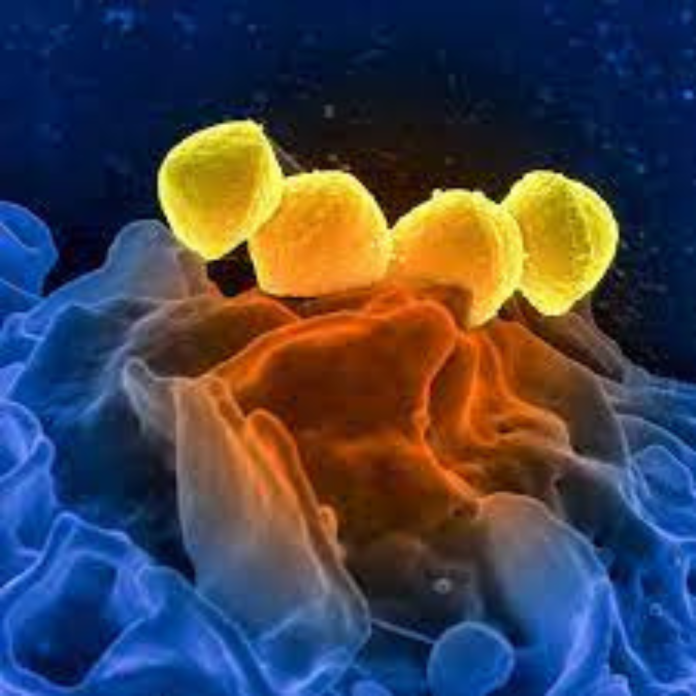Colorectal cancer is no longer just a disease of old age. Today, one in five cases occurs in people under 54, with diagnoses in this age group increasing by 11% over the past two decades. The cause of this alarming trend has puzzled scientists for years. Now, a new study published in Nature offers a compelling clue: early-life exposure to colibactin, a DNA-damaging toxin produced by certain gut bacteria, may be fueling this rise.
A Surprising Clue From the Microbiome
Researchers set out to explore why colorectal cancer rates differ across countries but stumbled upon a striking pattern: younger patients had a high rate of mutations linked to colibactin. This genotoxin, made by some strains of E. coli, can damage DNA in human cells.
Led by Dr. Ludmil Alexandrov of UC San Diego, the study analyzed tumor samples from nearly 1,000 patients in 11 countries, including Japan, Canada, and Colombia. Using advanced DNA sequencing, the team identified “mutational signatures” — patterns of genetic changes associated with different carcinogens.
“Younger patients had a markedly higher prevalence of colibactin-associated mutations,” Alexandrov says. The data showed that those diagnosed before age 40 were three times more likely to have these mutations than patients diagnosed after 70.
Even more startling, the study indicates these mutations often occurred before age 10. Alexandrov likens tumor DNA to an archaeological record — offering a timeline of damage accumulated across a lifetime. In this case, it suggests an early hit to the gut microbiome may push cancer risk decades forward, leading to diagnoses in one’s 30s instead of the 60s or 70s.
What Is Colibactin — And Why Does It Matter?
Colibactin is a genotoxin, a weapon some bacteria use to outcompete others. In some individuals, these bacteria become dominant and begin harming their human host by triggering DNA mutations. But only a fraction of people harboring colibactin-producing bacteria actually develop cancer — so what makes the difference?
Researchers believe environmental factors may play a key role. For instance, people in highly urbanized, Western countries tend to have more of these bacteria. Diet may be part of the equation too. A Western diet, high in red and processed meats, added sugars, and low in fiber, is already linked to higher colorectal cancer risk. It may also create conditions in the gut that allow colibactin to become more mutagenic — though this remains unproven.
“There’s likely a combination of factors,” says Dr. Cynthia Sears, a professor of oncology and infectious diseases at Johns Hopkins, who was not involved in the study. Early-life exposures — like C-section birth, antibiotic use, formula feeding, or processed food consumption — might alter the microbiome in ways that make colibactin-producing bacteria more harmful.
Even the specific location in the colon matters. “The rectum and the sigmoid colon have different biologies,” Sears notes, which could influence where and how tumors develop.
What Comes Next: Prevention and Early Detection
Both Alexandrov and Sears agree that more research is urgently needed, especially long-term studies that follow people from childhood. One promising direction is the development of probiotics designed to outcompete colibactin-producing bacteria, possibly as a preventive strategy.
Another option: screening for colibactin-related mutations through stool tests. If successful, such a test could help identify individuals at risk of early-onset colorectal cancer, prompting them to begin screening in their 20s instead of their 40s.
Still, Sears cautions that colibactin is unlikely to be the only cause of the rise in early-onset colorectal cancer. “We shouldn’t focus too narrowly. There’s a whole spectrum of research still to be done,” she says.
What You Can Do Now
Until scientists know more, lifestyle choices remain your best defense. Sears recommends following a Mediterranean-style diet, exercising regularly, avoiding smoking, and limiting alcohol intake.
And perhaps most importantly, don’t ignore the warning signs. Persistent abdominal pain, unexplained weight loss, and rectal bleeding are symptoms too often dismissed in younger adults. “They need to understand this could be something serious,” Alexandrov emphasizes. Early detection makes all the difference.



